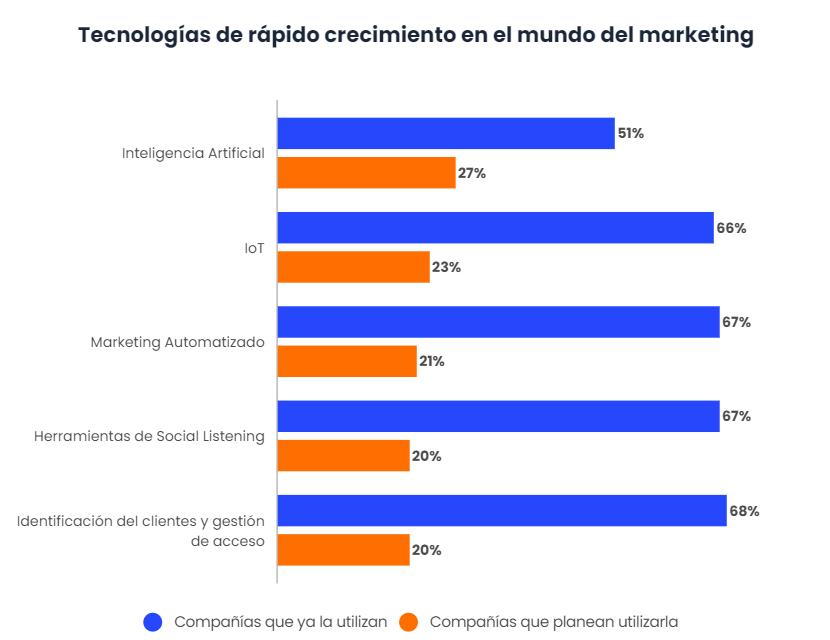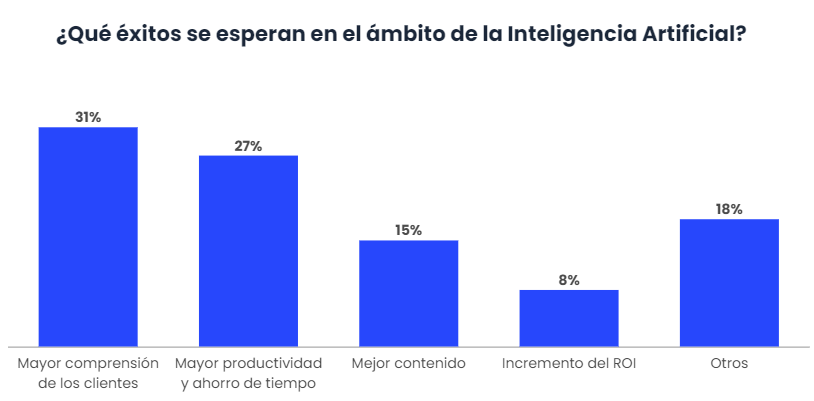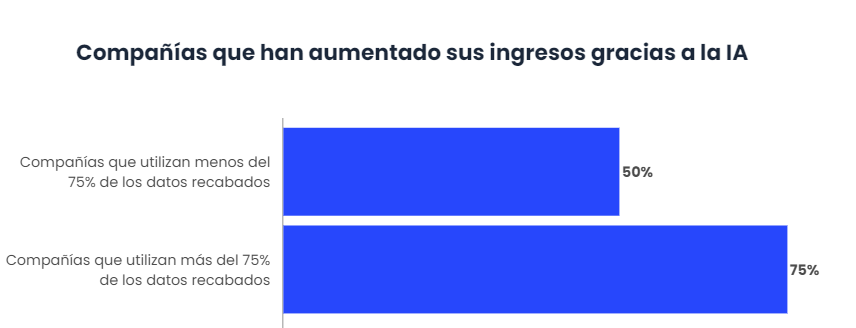Customers are more satisfied with Artificial Intelligence

Advances in robotics and the increased rate of deployment of artificial intelligence (AI) in developing economies around the world have had a positive impact on the global market, with the global artificial intelligence market expected to reach $54 billion by 2026.

Increased customer experience, expanded application areas, improved productivity, and big data integration have driven the aia market worldwide. However, the absence of skilled labour and the threat to human dignity are some of the factors that could affect market growth. However, these factors are expected to have minimal impact on the market attributed to the introduction of advanced technologies.
What has been achieved so far?
So far, an extraordinary increase in productivity has been achieved with machine learning, for example, with the help of its experimental driverless technology, some companies have transformed the vehicles, turning them into devices Autonomous.
On the other hand, the integration of several tools by AI has helped in the transformation of business management. These tools include workflow management tools, trend predictions, marketing applications, etc.
In the case of facial recognition, a success rate of 97% has been achieved, which is great news about the growth of the market over the next few years.
Today, North America dominates the global Artificial Intelligence market, thanks in large part to the high availability of government funds, the existence of prominent artificial intelligence providers in the region, and the strong foundation of adoption Technical.
Much of this domain is due to the adoption of cloud-based services by economies such as the US. Canada, which contribute significantly to market growth in the North American region.
In collaboration with the U.S. government, technology company Google, it is using data collected through artificial intelligence and satellite data to prevent illegal fishing. The company’s engineers have created Global FishingWatch, an app that shows where fishing is happening and subsequently allows authorities to identify when illegality was occurring.
Following this line, another American company such as Instagram has also used Big Data and Artificial Intelligence to combat cyberbullying and remove offensive comments. As the amount of content on the platform grows, artificial intelligence is critical to being able to show users the information they would like, combat spam, and improve the user experience.
In contrast, growth in the Asia-Pacific region is attributed to the growing demand for artificial technologies by developing companies. So it is anticipated that this region will grow to the highest CAGR until 2026.
What obstacles have been overcome?
It is clear that artificial intelligence has been introduced in a high percentage of companies, however, Artificial intelligence projects face unique obstacles due to their reach and popularity, misperceptions about their value, nature of the data they touch and cultural concerns. To overcome these obstacles, CIOs must set realistic expectations, identify appropriate use cases, and create new organizational structures.
However, as companies evolve their expectations and aia projects will also do so, and they will provide more transformative and strategic impacts.
33% of organisations mention finding a starting point as an obstacle to implementing this technology within their strategy.
And in the future?
There is no denying that artificial intelligence is rapidly moving from fiction to reality. Especially in the area of marketing where interest in AI has intensified as industry professionals have realized the potential of intelligent data leverage in improving customer experiences.

AI has become increasingly important, not only for marketing professionals, but also for organizations in general, to stay ahead of the curve in today’s dynamic market landscape.
Nine out of ten companies already use artificial intelligence to improve their customers’ travel. More importantly, three-quarters of companies improve revenue through AI-powered digital marketing.
For example, the growing subscription platforms that offer TV shows and movies say their personalized ai-based recommendations save them $1 billion in revenue per year by avoiding cancelled subscriptions because of canceled subscriptions because of canceled subscriptions because of the dissatisfied customers with the recommendations.
Among other cases, large retail companies increase their revenue by 20% by customizing their recommendations on key days such as black Friday or single day. In addition, they are able to predict whether a customer will leave the web with a 77% precision and remedy it by offering new recommendations.

In 2019, AI-driven marketing campaigns are expected to increase customer engagement by seven times and revenue by three times by helping marketing professionals become more specific, more relevant in their content, and more effective.
In particular in the area of marketing, a number of predictions are expected to be met this year:
AI will intelligently organize the entire customer’s journey
The first foray of abusing abmarketing specialists was the most important for audience expansion and targeting. In the future, AI will increasing the entire customer lifecycle, from customer engagement to engagement and retention.
It is expected that more than 20% marketing platforms will use artificial intelligence to optimize engagement for business-to-business (B2B) marketing. That number will be much higher for consumer businesses (B2C). In addition, artificial intelligence will go from influencing only the edges of the customer experience, such as inserting dynamic content, into organizing its core.
With these AI-driven decision engines, industry professionals can solve the increasingly complex process of customers by optimizing, customizing, and guiding every aspect of customers’ self-guided journeys with their brand.
However, only AI solutions can unify all incoming customer data and use their knowledge to organize decisions in real time.
CMOs will urged employees to create new experiences
As the demands and revenue goals of marketing organizations continue to grow, CMOs will increasingly emphasize leveraging technology to meet those demands.
CMOs will challenge your teams to run more campaigns, add more customization, and diversify their strategies by being smarter with their resources. Marketing companies will leverage AI to improve and streamline their work.
This technology can help amplify and accelerate marketing strategies by automating and optimizing multi-capital, cross-platform, and multi-stage marketing strategies. This will not only allow equipment to move faster and produce more, but will also allow them to find opportunities to accelerate growth.
How to use AI will become more creative
As marketing professionals begin to understand how artificial intelligence can increase and expand their efforts, we’ll see them leverage artificial intelligence in an innovative way and begin to break the marketing practices of the status quo.
After the initial Learning Curve of AI and the period in which the foundations are laid with strategy, processes and people, marketing professionals will begin to push the boundaries of their programs and experiment with new strategies.
Beyond downloading mundane marketing tasks into AI systems, marketing professionals can take the opportunity to re-imagine their customer engagement strategies. With artificial intelligence, new ideas can be launched in a short time without significant resources, as well as being able to be easily optimized and pivoted.
The AI will no longer be a “black box”
Professionals want control of their marketing programs and need to be able to explain their investments to their customers. However, the first generation of AI-based marketing strategies was an act of faith for industry specialists. That is why, it is relevant that today, it is the professionals of the sector themselves who choose with a 34 artificial intelligence as the most innovative and necessary technology for marketing.
The growth of artificial intelligence in 2019 and beyond will be driven by “explainable AI,” which means that marketing professionals can see what factors influence predictions and can control the parameters that guide AI.
AI adoption will inevitably accelerate, however, it is important for professionals to look for AI solutions that provide the level of control and visibility of the algorithms and workflows they need.
Companies will make a profit from their investments
Last year, it was predicted that by 2020, artificial intelligence technologies would be virtually ubiquitous in almost all new software products and services. This prediction is being met with a proliferation of marketing software vendors, who are adding AI to their product strategies.
However, not all marketing products that use artificial intelligence are the same. This year, real AI marketing solutions will be more emphony-separated from additional AI solutions.
As the “IA” label becomes commonplace, it will become increasingly difficult for marketers to identify real artificial intelligence solutions capable of solving their problems effectively. Therefore, they should be more attentive to the claims of test providers to eliminate masked AI solutions.
AI to fight ad fraud
One battle that is expected to gain artificial intelligence next year on behalf of advertisers is to confront the threat of ad fraud that has affected the digital advertising industry around the world. Advertising fraud, as the name suggests, is a scam carried out to generate revenue by creating fake traffic. This is usually achieved by using bots that mimic human clicks and impressions to deceive the advertiser of advertising money.
This is such an outspread practice that almost 30% of the advertising budget is wasted due to these fraudulent activities. Seemingly impossible for humans, AI can monitor robots in real time to find fraudulent patterns and subsequently adjust the ad-serving strategy quickly to curb such activities and help professionals get the most out of your investment.
AI will improve company SEO
SEO marketing is crucial for B2B companies, as 90 of B2B buyers turn to the most common search engines as the starting point for their search for products and services.
By using artificial intelligence, B2B entrepreneurs can automate keyword search and tagging; analyze the natural language queries that the search engine will likely collect; and generate market and competition perspectives.
In addition, AI will now help perform predictive analytics by analyzing and forecasting search trends, helping to improve sales. Good application of this technology can improve investment performance.


